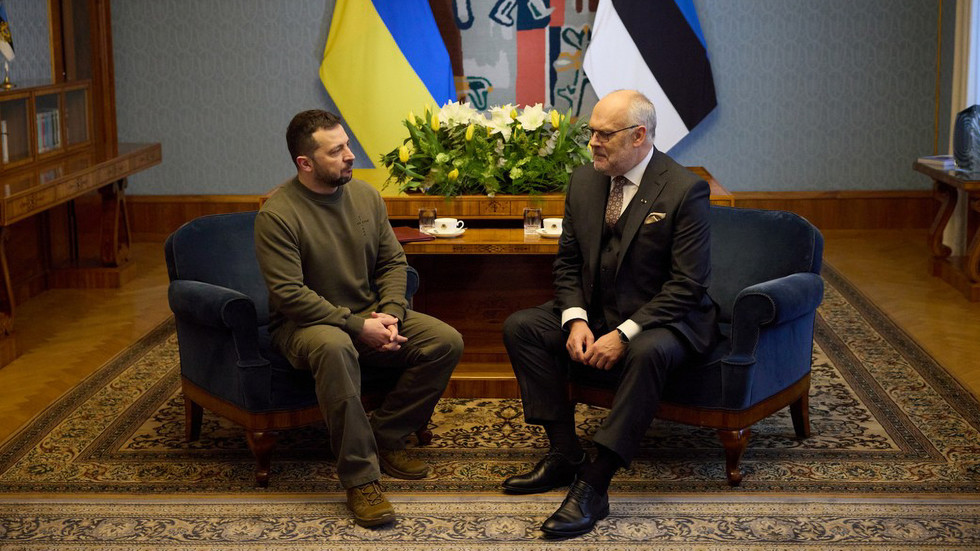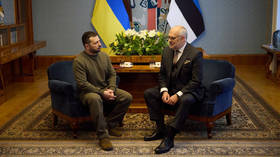
Officials in Kiev have argued that strikes deep inside Russia are the best way to defend their nation

Estonian President Alar Karis (R) and Ukrainian President Vladimir Zelensky (L) meet in Tallinn, Estonia on January 11, 2024. © Ukrainian Presidency / Handout via Anadolu / Getty Images
Western donors should not tell Ukraine how it can use the weapons provided to it, Estonian President Alar Karis argued on Thursday, as he touted his nation’s record of arming Kiev against Russia.
The US and its allies have been sending increasingly sophisticated military equipment, while cautioning against using them to strike parts of Russia that Ukraine acknowledges to be under Moscow’s sovereignty. Ukrainian officials have complained that this condition undermines their effectiveness in pursuing the war.
Karis said there should be no such restrictions, while giving a joint press conference with Ukrainian President Vladimir Zelensky in Tallinn. He noted that Estonia has pledged to spend 0.25% of its GDP on military aid for Ukraine over the next several years, and urged other Western nations to offer at least the same level of support. Tallinn’s contribution will total €1.2 billion ($1.3 billion) by the end of 2027, he promised.

Read more
Zelensky toured the three Baltic nations – Latvia, Lithuania and Estonia – this week to rally support for the Ukrainian cause. Kiev is facing a shortage of financial and military assistance, after its troops failed to make any significant territorial gains against Russia last year, despite receiving Western main battle tanks, cruise missiles and other heavy weapons.
While Zelensky was visiting the region, the US government confirmed that it had run out of money for Ukraine and could not send any more arms. The aid has “ground to a halt,” national security spokesman John Kirby said on Thursday. Additional funding requested by the White House has been blocked by Republican opposition in Congress.
The Ukrainian military has complained about an increasing shortage of air defense systems and munitions amid continued Russian strikes. Yury Ignat, a spokesman for the Air Force, said this week that the “best method” of addressing the disparity would be to attack launchers on Russian soil.
READ MORE: Pentagon report finds failure to track $1 billion in weaponry for Ukraine
Moscow has fired several massive barrages of missiles at Ukrainian targets in the past few weeks, with Kiev reporting a sharp drop in interception rates compared to previous such attacks.




